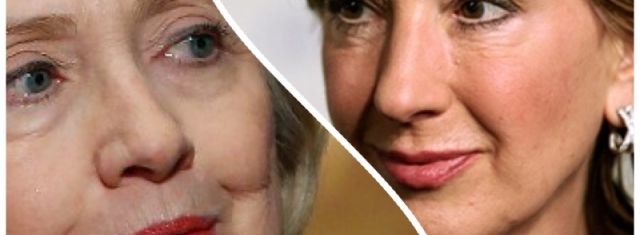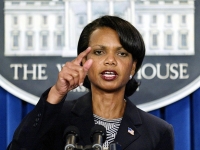Politics
FIRST FEMALE PRESIDENT ?
U.S. IS TRYING TO LEAP AHEAD

In a world where women are increasingly crucial to international and domestic politics, the United States is ranked 79th in terms of women´s political participation. This puts us far behind many countries that we designate as “Third World.“ Creating female world leaders is essential.
Fortunately, this trend is not without its exceptions; Hillary Clinton, Condoleezza Rice, Clinton´s predecessor, Madeline Albright, Nancy Pelosi, Dianne Feinstein, Barbara Boxer, Elizabeth Warren and Kay Bailey Hutchinson to name but a few, are shining examples of female political capability and power. Secretary Rice, the first African-American woman to serve as Provost of Stanford University, National Security Advisor, and as U.S. Secretary of State. is recognized for her dedication to improving U.S. foreign policy through “Transformational Diplomacy“. She championed the expansion of empowered democratic governments and worked with many countries on a bilateral basis to help them build a stronger infrastructure while decreasing foreign nations' dependence on American hand-outs and assistance.
While ultimately it should be the politics of a nation´s ruler that matter above all other factors, a female president of the United States would be a big step, and is long overdue. However, persisting in the push for female leadership, last week, former Secretary of State Hillary Clinton officially announced her candidacy for the 2016 US Presidential elections and former HP CEO Carly Fiorina is getting ready to declare her plans to run for office in the upcoming weeks. Many of Hillary´s supporters were first alerted over email, she quickly released a YouTube video culminating in her announcement “I´m hitting the road to earn your vote, because it´s your time. And I hope you´ll join me on this journey.“
Carly´s or Hillary´s election could also mean their joining the Council of Women World Leaders, an organization of current and former female presidents/prime ministers with the mission to mobilize the highest-level women leaders globally for collective action on issues of critical importance to women. Part of this network are several women who have made huge steps in the fight for gender equality. Corazon Aquino, the first female president of the Philippines and in Asia, established a new constitution and congress, broke up national economic monopolies, and was named TIME Magazine´s Woman of the Year in 1986. Ellen Johnson Sirleaf, the first female president in Liberia and in Africa, brought up the Liberian GDP from $604 million in 2006 to $1.7 billion in 2012; she also received, along with two others, the 2011 Nobel Peace Prize for her work toward gender equality. Angela Merkel of Germany, Eveline Widmer- Schlumpf of Switzerland, Michelle Bachelet of Chile, Geun-hye Park of the Republic of Korea and Erna Solberg of Norway are present female Commanders in Chief, leading and making a positive impact and . Whether or not their platforms rest on gender equality, their presence and capability in those leadership positions works to expand horizons and opportunities internationally.
Globally, at an incredibly young age, Malala Yousafzai, who recently took the world by storm when she became the youngest person to receive the Nobel Peace Prize, taught us many important lessons. At age 11, she took a stand against the Taliban that millions of others refused to take; she gave a talk in Peshawar, Pakistan, entitled “How dare the Taliban take away my basic right to education?“ Her following activism, autobiography, and perseverance received an outpour of international support, highlighting some of the deeper issues preventing young girls´ education all over the world.
Support for Condolezzza Rice, Carly Fiorina, Hillary Clinton and Malala Yousafzai, all hardworking, intelligent, and capable of shifting their environment, lead to a similar conclusion. Women and men, more and more, are lending their support toward putting more qualified and competent women in positions of decision-making power. While there are, in the U.S. and internationally, several examples of women taking the lead, we still have a long ways to go to catch up with the rest of the world.
more information: https://www.ambassadorialroundtable.org







